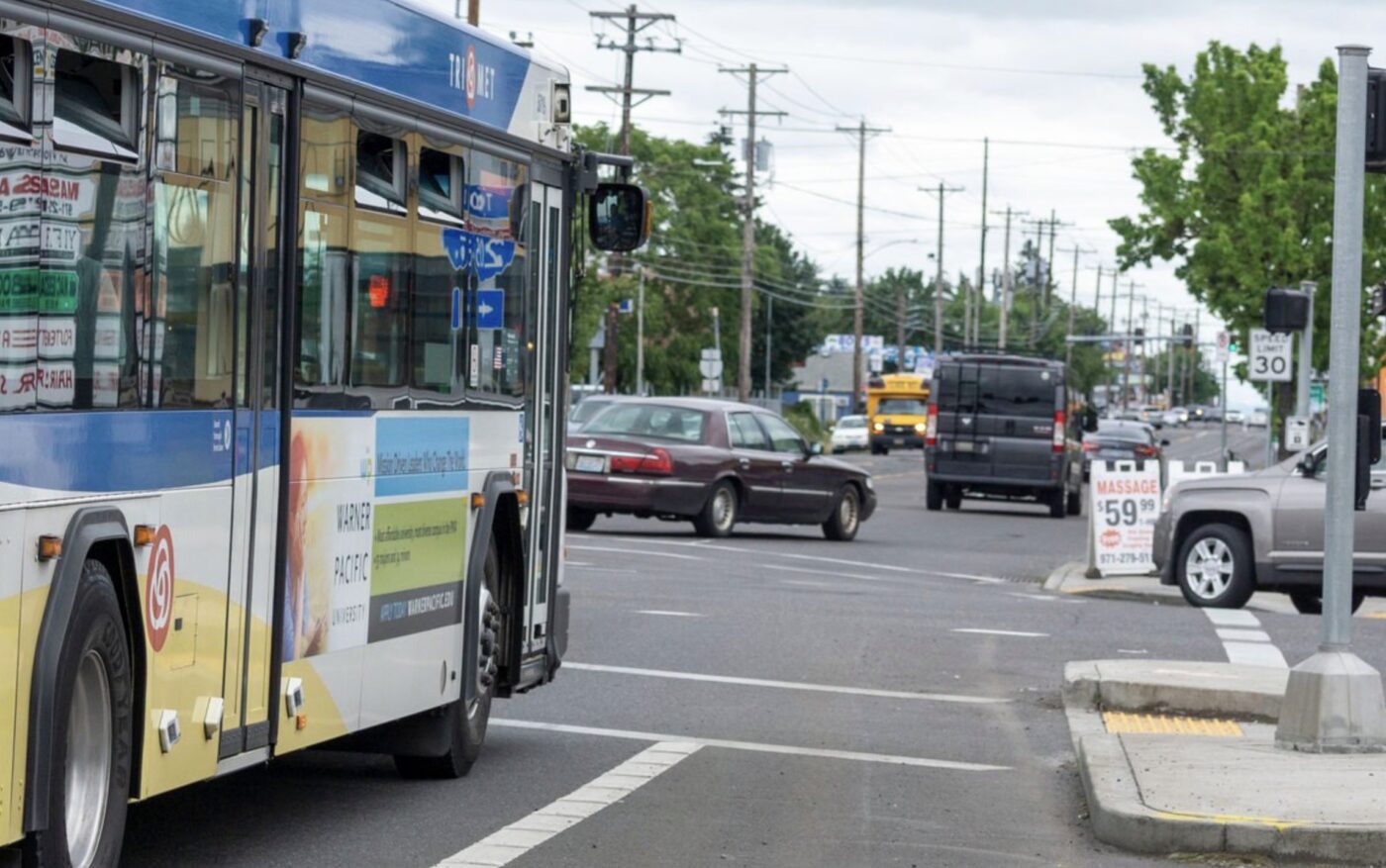TriMet will upgrade its bus fleet with hydrogen fuel-cell powered vehicles and boost its work on 82nd Avenue’s forthcoming bus line thanks to a federal grant announced today.
The Federal Transit Administration has awarded TriMet $39,000,000 through their Low or No Emission Grant Program. TriMet’s award was the sixth largest out of 117 grants nationwide that totaled nearly $1.5 billion. TriMet will use the money to purchase 14 articulated, fuel-cell electric buses for the future FX service along 82nd Avenue as well as install infrastructure at their Powell Operations facility needed for fueling the buses and invest in workforce development to get staff up-to-speed on fuel-cell technology.
Metro and the City of Portland are currently working on a major upgrade of the Line 72 bus line as part of the 82nd Avenue Transit Project, which will bring an upgraded bus line between Clackamas Town Center and the Cully Neighborhood. The award comes one year after the FTA gave TriMet $630,000 to plan that project and builds on a $25 million grant TriMet just received last week to build a new operations facility at an industrial site in northeast Portland that will someday house and maintain the agency’s fleet of battery and fuel-cell powered buses.
These two awards push TriMet far along toward their goal of a 100% zero-emissions bus fleet by 2040.
“We know we need to be leaders in the region and step forward to move the demand for green hydrogen forward in the region,” said TriMet project manager Michael Kiser at TriMet’s June 26th board meeting. “These buses out in the community is just a much better outcome. If we look at Cully as a terminus option, having zero emission buses at that layover facility is something I want to see. I don’t want to have our diesel vehicles out there idling.”
But emissions aren’t the only reason TriMet and the Biden administration want to invest in 82nd Avenue. The portion of Line 72 along 82nd is the busiest bus line in the Portland region and it also has some of the most frustrating service delays. Metro’s locally preferred alternative for the transit project is to develop a new “FX” bus line similar to the one that opened in fall of 2022 on SE Division. The buses will be faster, larger, and will come with upgrades to stops throughout the corridor.
US Secretary of Transportation Pete Buttigieg toured 82nd Avenue in a bus last summer, so he appreciates the transformative impact major investments can make.
Outgoing Portland Congressman Earl Blumenauer is the one who invited Buttigieg on that tour and said in a statement today, “Secretary Buttigieg saw first-hand the case for investment on 82nd Avenue. Today, the Biden-Harris Administration delivered.” Blumenauer sees the award as proof the community is united behind a shared vision for 82nd — “Transforming a once neglected area into a thriving corridor in a low-carbon, equitable fashion” — and that the grant will make the vision reality.
TriMet launched its first electric battery powered bus in 2019, but hydrogen fuel-cell technology might be a better fit. Fuel-cell buses cost more up front, ($1.2 million per vehicle versus $750,000 for an electric one, according to one estimate I found) but they have several advantages over battery electric models: they can refuel in a matter of minutes (versus overnight), have greater range and longer run time, are more efficient, and are more resilient to temperature swings.
But unlike battery electric buses, fuel-cell power has emissions. Thankfully, it’s just water.
TriMet says the new bus line should be constructed in 2027 and will begin service in 2029.



